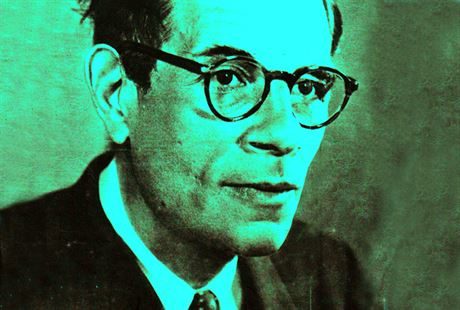Without abolishing the individual, the Scottish Enlightenment nonetheless made solidarity basic to human existence.
Of Nobility and Modernity: The Thought of Aurel Kolnai
Aurel Kolnai (1900-1973) was a brilliant representative of 20th century European conservatism. Born in Hungary, but educated in Vienna between the wars, he was exposed to the last flourishes of the Austro-Hungarian Empire and high German culture that included the transformative minds of Richard Wagner, Sigmund Freud, Albert Einstein, Alexius Meinong, and Ludwig von Mises, to name only a few. With the rise of Adolf Hitler, he was forced to flee; though he converted to Catholicism in his twenties, Kolnai had been born into a liberal Jewish family. After spending time in the United States and Canada, Kolnai settled happily in England. Fiercely anti-totalitarian and witness to the great political ideologies of the century, Kolnai never wavered from a balanced conservatism. An advocate of establishment, which he worked out in the concept of privilege, he might be thought of as a Central European version of Edmund Burke.
Kolnai’s thinking—and he was able to write philosophy in Hungarian, German, French, Spanish, and English—can be divided into three broad periods. After a brief stint in Freud’s Vienna circle, he abandoned psychoanalysis for phenomenology. An innovation in philosophical method inaugurated by Edmund Husserl in Germany, phenomenology is the primary approach to philosophy and the social sciences in Europe today. The method is marked by an acute focus on experience, discerning with precision the contents of our consciousness so as to reform our accounts of self, institutions, and world.
His first period gave us books and essays on disgust, hate, vitalism, and sexual ethics. As was the case for Saint John Paul II, who as a Pole breathed the same Central European intellectual air as Kolnai, his mentor was the Catholic phenomenologist, Max Scheler. All Kolnai’s subsequent political thinking was rooted in the tradition of value ethics developed by Scheler.
This first period culminated in 1938 with the massive, 700-page The War Against the West. The most thorough examination extant of the thoughtscape of Nazism, it was Kolnai’s attempt to encourage the British Empire and America to go to war against Hitler’s Germany. He wrote the book directly in English. A sign of its continuing importance is a recent German translation.[1]
By the early 1940s, Kolnai had secured a position at the Catholic University of Laval in Quebec. The war years were obviously unhappy ones for the exiled Kolnai. He disliked Quebec but it was there, at Laval, that he formulated his greatest contributions to conservative thought. Two of his most powerful essays date to this time: “The Humanitarian Versus the Religious Attitude” and “Privilege and Liberty.” Kolnai wanted to reclaim the idea of nobility while taking full account of modern liberty.
His signature contribution is the analytical precision with which he pursues the connection between the moral value of nobility and the place that it holds in society, namely privilege. He sought to resolve an extraordinarily difficult and serious problem in modern Western sensibility: How to inject high moral worth into a thoroughly commercial culture devoted to vanity and changes of fashion without embracing militarism (as fascism did), discarding bourgeois suavity (as communism did), or subverting historically settled patterns of life (as progressive humanitarianism did).
In 1955 he moved to England. His third period of work, undertaken while he lived in a settled monarchy, aligned his Continental value ethics with the Scottish Enlightenment, especially Thomas Reid, and the work of contemporary British moral intuitionists like G.E. Moore and W.D. Ross. This period generated seminal essays on consensus, hierarchy, and dignity, consolidating his prior writings on privilege.
Like the thinkers of the Scottish Enlightenment, Kolnai was struck by consensus: patterns of sensibility and manners diffused through settled communities. Wondering about the origins of genius, David Hume argues that the individuals celebrated in history books emerge from a spirit of genius pervading a people, and essential to this common spirit are conditions fostering law, mastery of the mechanical arts, learning, and commerce. With regard to nobility, Kolnai found evidence of this diffusion in an English expression that he loved even though it was (perhaps because it was) grammatically faulty: “I knows a gentleman when I sees ’im.”
Also like the Scots, Kolnai thinks that our grasp of the world depends on our emotions and their perceptual-valuational character: “We would call a man ‘noble’ whom we could not as it were imagine to act or behave in any situation otherwise than with intensity, grace, genius, originality, grandeur, justice, generosity or high-mindedness.”[2] These attributes are discrete value-tones and whilst a simple intuition of each is possible, in the normal course of things values make their appeal in and through establishment. Indeed, like Adam Smith,[3] Kolnai thinks moral perception is only rudimentary without the mediation of establishment.
It is a signature theme of Kolnai’s thought that the value-setting tones of nobility require privilege. For this claim, he offers a compelling phenomenological observation. The example he points to is the climbing of a hill. On the flat, before climbing, various aspects of the landscape stand out. Even a little elevation, however, adds richness to what one sees. In particular, with the climb underway, one can come to see behind the buildings and copses that previously had blocked one’s sight. The phenomenology of height shows that civilizational values like nobility are only acquired atop elevated social positions or establishment.
This modifies populism yet is repeated there, as we’ll see in a moment. Kolnai grants that egalitarianism is a value, but care is required. He identifies egalitarianism as a low value, tending towards a disvalue: It is likely to restrict our very capacity to recognize value, rejecting, as it does, raised positions (this is why progressive humanitarianism is pernicious). Constellations of words and social concepts in all cultures set the refined, dignified, and noble at a height. If populism is fostered by modernity, and before it, by a certain strain within Christianity, then a politics of privilege is necessary to shore up institutions of height, the importance of which phenomenology, ordinary language, and social practice confirm. Unless institutions of height are shored up, populism can eat away at privilege and therewith nobility, and even dignity.
Therefore, establishment is one necessary feature of a society with a healthy politics:
Positions of authority, power, rank, prestige, wealth, etc., deserve being respected and honored not because they warrant personal excellence but because they stand for a vital necessity of social order and are conducive to the recognition by and in society of the hierarchical distinction of values . . . So far, an ‘aristocratic’ society is both possible and desirable.
It is an implication of the consensus expressed in “I knows a gentleman when I sees ’im” that these value-bearing sites of privilege sit atop a broader reservoir of value-ladenness:
The nobleness of society depends, not merely on the nobleness (in the widest sense of the word) of its leading members but also on the nobleness of its members in general, as a whole, and the possibilities it affords for the unfolding of the nobleness virtually present in its average, I would venture to say in its humblest members.
Privilege and hierarchy modify modern liberty’s trend toward populism but are also firmly anchored therein, and phenomenological examples of this are all around us. Dog shows sort themselves out into hierarchies of judges, breeders, and competitors. Sheep-herding competitions televised in Britain venerate illustrious families of sheep dogs. Then, too, television shows like the Great British Bake-Off, American Idol, and Project Runway bring amateurs under the eye of establishment figures. Pageants of all kinds judge grace and beauty. County fairs offer prizes for the best squash or pig. Connoisseurs of sneakers drive the price of certain designs into five figures. Classic car enthusiasts consult old engineering manuals for the finer points of tuning their historic engines. The sport of golf culminates in the rare green jacket and European club soccer in the holy of holies, “Big Ears,” the Champions League Cup.
Establishment resonates because populism itself is shot through with the search for nobility, in farm animals, vegetables, cakes, sneakers, hubs and engines, and human talents. Put another way, establishment relies on, and consolidates, the dignity of the people. A constellation of moral and aesthetic values, nobility, embodied in privilege, makes prominent the desirability of distance and independence; it teaches the importance of being dominant, or at least, being self-contained and not put-upon. With these attributes, nobility affirms the urgency of dignity to human life.
Establishment is the vox populi.
[1] Der Krieg Gegen den Westen, translated from the English by Wolgang Bialas (Vandenhoeck and Ruprecht, 2015).
[2] Aurel Kolnai, “The Concept of Hierarchy,” Ethics, Value and Reality (Routledge, 2008), p. 181.
[3] Adam Smith, The Theory of Moral Sentiments (Liberty Fund, 1982), pp. 110-13, 159, and 181.



